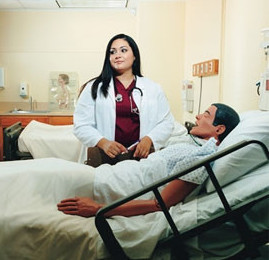As I have mentioned in previous posts, I gave up my personal car almost 7 years ago. Since I was doing locum tenens full time, I didn’t see a purpose in having my own car anymore. As agencies/sites provide a car rental while on assignment. Additionally, I didn’t want to drive to assignments that were cross country.
When I was not on assignment, I was usually traveling abroad. When home for a week or two, I would just borrow a relative’s car or rent my own car through free car rental certificates I accumulated from National (from being a travel NP).
When my partner moved to the USA, and I committed to staying in Miami for at least 3 months, I debated if it was finally time to get my own car again. I thought about purchasing a car but didn’t want to commit right away, because I actually enjoy being car free. It is one less thing I have to think about and one less bill I have. I enjoy living in Europe, because I can easily use public transportation there.
My partner and I, planned on spending 3 months in Europe once he got his green card, so it didn’t make sense to have a car payment while we were abroad. I looked into renting a car monthly on Turo. The cars are affordable, but the problem is you have to purchase car rental insurance separately. Your regular car insurance like Geico, does NOT cover Turo rental cars. By adding the car insurance, the cost to rent the car doubled. My original budget was ~$1000/mo, so adding the car insurance would make it cost $2000/mo, which was way too much.
I looked at renting with National for a month, the way my agency does, but it would have cost about $2000/mo. I remember before covid it was closer to $1000/mo, but the price has definitely gone up since then, and it depends on the location.
Fortunately, one of my friends told me about Sixt Subscription. Pretty much, you can rent a luxury car through them for 30 days at a time in many large cities. You can cancel your subscription at any time. And it was actually affordable! I decided to rent a BMW x5 for $1000/month. I was able to use my regular car insurance through Geico which was only $120/month.
Score! And – I got to have a nice car! I have always loved cars so even if I purchased one, it would likely be a luxurious German car. In fact, my parents ended up purchasing a BMW x5 after I rented mine, and their car payment was identical to mine, except I didn’t have to give a down payment. I was given 1000 miles per month, but could purchase extra miles for a reasonable cost.
Using Sixt Subscription ended up working out really well. Essentially, I was able to drive a car I like, without having to commit to years of payments. They have some cheaper options such as a Volkswagen or Toyota Corolla closer to ~$700. I wanted to share my experience in case you are also carless by choice and are looking for ways to have a car in between assignments.










